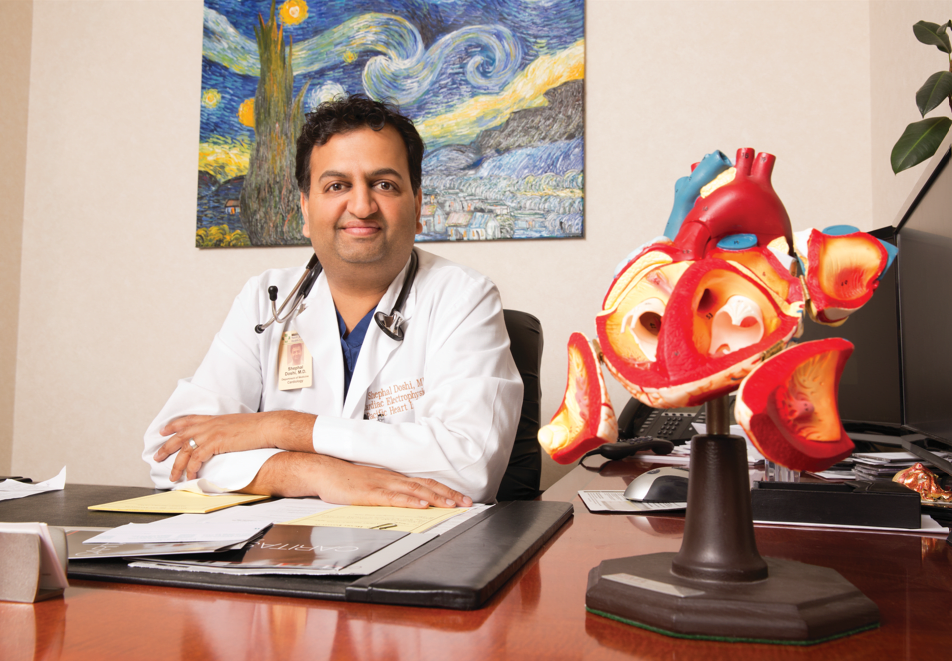A Fast Fix for A-fib

Rob Sears, 79, wasn’t having much luck finding a cardiologist around his hometown of Port Townsend, Wash., who could help him with his atrial fibrillation (A-fib). In spite of consulting with five different doctors, Rob hadn’t found a solution to his troubling heart arrhythmia. A-fib was causing the two upper chambers (atria) of Rob’s heart to beat irregularly, sometimes very quickly. In some of the six million Americans who have A-fib, the condition doesn’t cause noticeable symptoms, but in Rob it did. “I got to the point where I was down on the ground and couldn’t catch my breath,” Rob recalls. “My heart was up to 160 beats a minute. It felt like a couple of ferrets were trying to fight their way out of my chest.”
The retired general contractor and cabinetmaker first noticed symptoms in 2015, and from that point on his condition worsened. And Rob knew having A-fib isn’t just an inconvenience; it also means a five times greater risk of stroke, because it can cause blood to pool and clot in the heart, after which the clot can travel to the brain. It also increased his risk of heart failure. He had undergone two different forms of cardioversion, in which doctors try to reset the heart rhythm with electric shocks or medication. Neither fixed Rob’s A-fib for more than a few days, so he had to stay on blood thinners, a problematic option for a man who still enjoys working with his hands and sharp tools.
Rob’s luck turned, though, when he followed a friend’s recommendation and traveled to Los Angeles to meet with Providence Saint John’s Health Center cardiologist Shephal Doshi, M.D. Dr. Doshi specializes in cardiac electrophysiology, and he had a brand-new solution to offer Rob: pulsed field ablation.
Very First Patient

Thermal ablation has long been used to treat A-fib. During this procedure, the doctor uses heat or cold to destroy the heart tissue that’s producing the abnormal rhythm signal. While it’s usually effective in stopping A-fib, it can damage surrounding tissue, such as the esophagus or the phrenic nerve, sometimes with deadly consequences. As Dr. Doshi explains it, “When you destroy something using heat or freezing, you can cause collateral damage because the energy doesn't stop at the tissue. Like when you heat a pot on a stove — the water boils, but the handle also gets hot.”
Pulsed field ablation (PFA) uses the same concept but with more precision, because the seconds-long pulse of nonthermal energy is tuned to destroy only cardiac tissue, making it safer and more effective. Boston Scientific’s Farapulse Pulsed Field Ablation System was approved by the Food and Drug Administration in January, and in March, Rob became the first patient at Providence Saint John’s to undergo the procedure with Dr. Doshi, who has performed more than 4,000 conventional ablations and participated in PFA clinical trials. In fact, Dr. Doshi’s PFA treatment was one of the first performed in Los Angeles.
The PFA procedure doesn’t require general anesthesia — a huge advantage over other options for elderly or frail patients who can’t tolerate the anesthesia needed for other options. And this means recovery is rapid: “From the time I woke up from the sedative, we were out of there within an hour,” recalls Rob. “I was amazed.”
The nearly painless procedure is done with a catheter that’s threaded into the heart via the femoral vein in the groin while the patient is under mild sedation. The physician then directs ultra-rapid high-energy electrical pulses into specific areas of the heart to kill targeted tissue and cause scar tissue to form.-The scar tissue then blocks the faulty electrical signals that cause A-fib.
Rob says he wasn’t fearful about being the first patient and was more focused on his hope of finally finding a solution. “Dr. Doshi looked me right in the eye and said, ‘Don’t worry,’” he says. “I can’t express enough gratitude for having this technology available. My life has turned around because of it.”
To schedule a consult with Dr. Doshi to determine if you’re a candidate for PFA, contact his office at 310-829-7678.